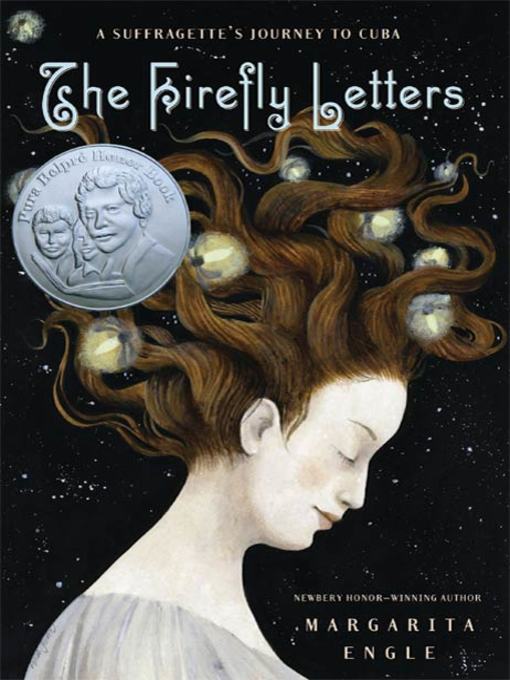The freedom to roam is something that women and girls in Cuba do not have. Yet when Fredrika Bremer visits from Sweden in 1851 to learn about the people of this magical island, she is accompanied by Cecilia, a young slave who longs for her lost home in Africa. Soon Elena, the wealthy daughter of the house, sneaks out to join them. As the three women explore the lush countryside, they form a bond that breaks the barriers of language and culture.
In this quietly powerful new book, award-winning poet Margarita Engle paints a portrait of early women's rights pioneer Fredrika Bremer and the journey to Cuba that transformed her life.
The Firefly Letters is a 2011 Pura Belpre Honor Book for Narrative and a 2011 Bank Street - Best Children's Book of the Year.
- New eBook Added!
- New Kids Added!
- New Teen Added!
- Career and Employment resources
- Citizenship & Immigration resources
- Computer Books
- ESOL resourses
- Travel Guides
- Popular e-Books (no waiting)
- See all ebooks collections
- New Audiobooks Added!
- New Kids Added!
- New Teen Added!
- Try Something Different
- Learn a Language
- Popular Audiobooks (no waiting!)
- See all audiobooks collections
- Just added
- Most popular
- Try something different
- Browse Magazines
- Spanish Magazines
- See all magazines collections




